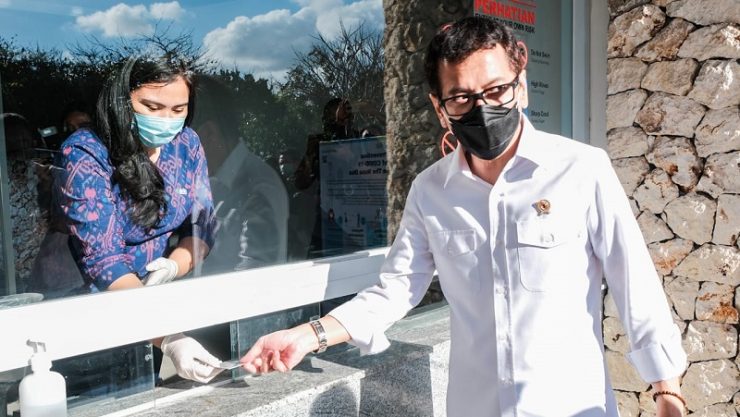THE Ministry of Tourism and Creative Economy conducted a field survey on the implementation of health protocols in a number of tourist locations in DKI Jakarta Province and around Bandung, West Java. Businesses are then encouraged to apply strict health protocols to carry out tourism activities well and productively while remaining safe from COVID-19.
According to the Deputy for Strategic Policy of the Ministry of Tourism, R. Kurleni Ukar said, the health protocol in the tourism business as regulated in KMK Number HK.01.07/Menkes/382/2020 concerning Health Protocols for People in Place and Public Facilities in the Framework of Prevention and Control of COVID-19 absolutely must be followed by all stakeholders, both tourists, business people and their workers. So it needs to be carried out strict monitoring and evaluation.
Together with the Department of Tourism and Creative Economy of the Province of DKI Jakarta and the Office of Tourism and Culture of West Java Province, the Ministry of Tourism conducted a field survey yesterday for the implementation of health protocols in a number of tourist sites in the Province of DKI Jakarta and around Bandung, West Java.
“From the results of monitoring in the field, the managers of tourist attractions have implemented health protocol quite well, but the discipline of visitors in following the protocol still needs to be improved,” Kurleni Ukar said.
Standard procedures such as measuring body temperature, providing hand sanitizers in various places, using masks and cleaning with disinfectants on a regular basis have been carried out. Appeals regarding health protocols and COVID-19v have been placed at several points and regularly socialized through loudspeakers in the field. Inflows and outflows, visiting hours and the number of visitors are also regulated so there is no build-up at tourist sites.
Specifically in West Java Province, visitor capacity is limited to a maximum of 30 to 50%. Employees on duty are also certain to be healthy and equipped with personal protective equipment such as face shields, masks, and gloves.
Online ticket sales and cashless payment systems are also available. However, not all tourists are ready for this, so that socialization efforts to adapt to this habit will continue in the future.
“We also convey some suggestions for improvement to the site managers. Socialization, monitoring and evaluation needs to be continued,” Kurleni Ukar noted.
Meanwhile the Minister of Tourism & Creative Economy, Wishnutama Kusubandio said the readiness of the region, industry players, and the community of each region is very important in implementing health protocols in order to bring good for the surrounding community.
“Do not let the implementation even later an increase in new cases. Because improving the protocol can be in one or two days, but returning the trust of tourists takes a long time,” Wishnutama stated.
The Ministry of Tourism has also compiled a Cleanliness, Health and Safety (CHS) protocol, among others in the form of educational videos and handbooks aimed at parekraf businesses. It is hoped that local governments can continue to monitor and evaluate their application.
“Tourism is a business that is very dependent on the trust of domestic and international tourists. Improving protocols can be done quickly, but rebuilding trust takes a long time. Therefore, strict supervision is needed in implementing the health protocol,” Wishnutama concluded. [traveltext.id]
















